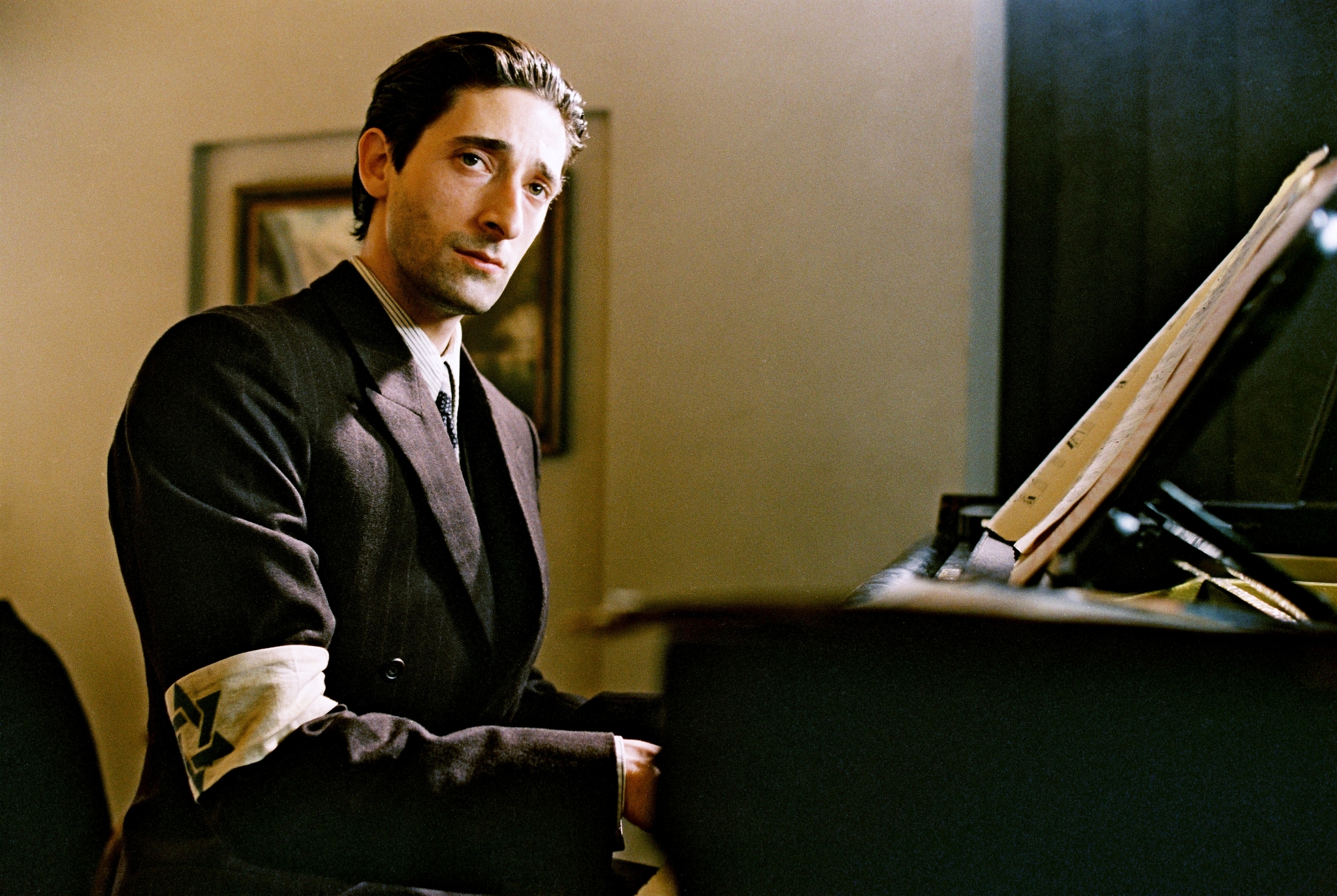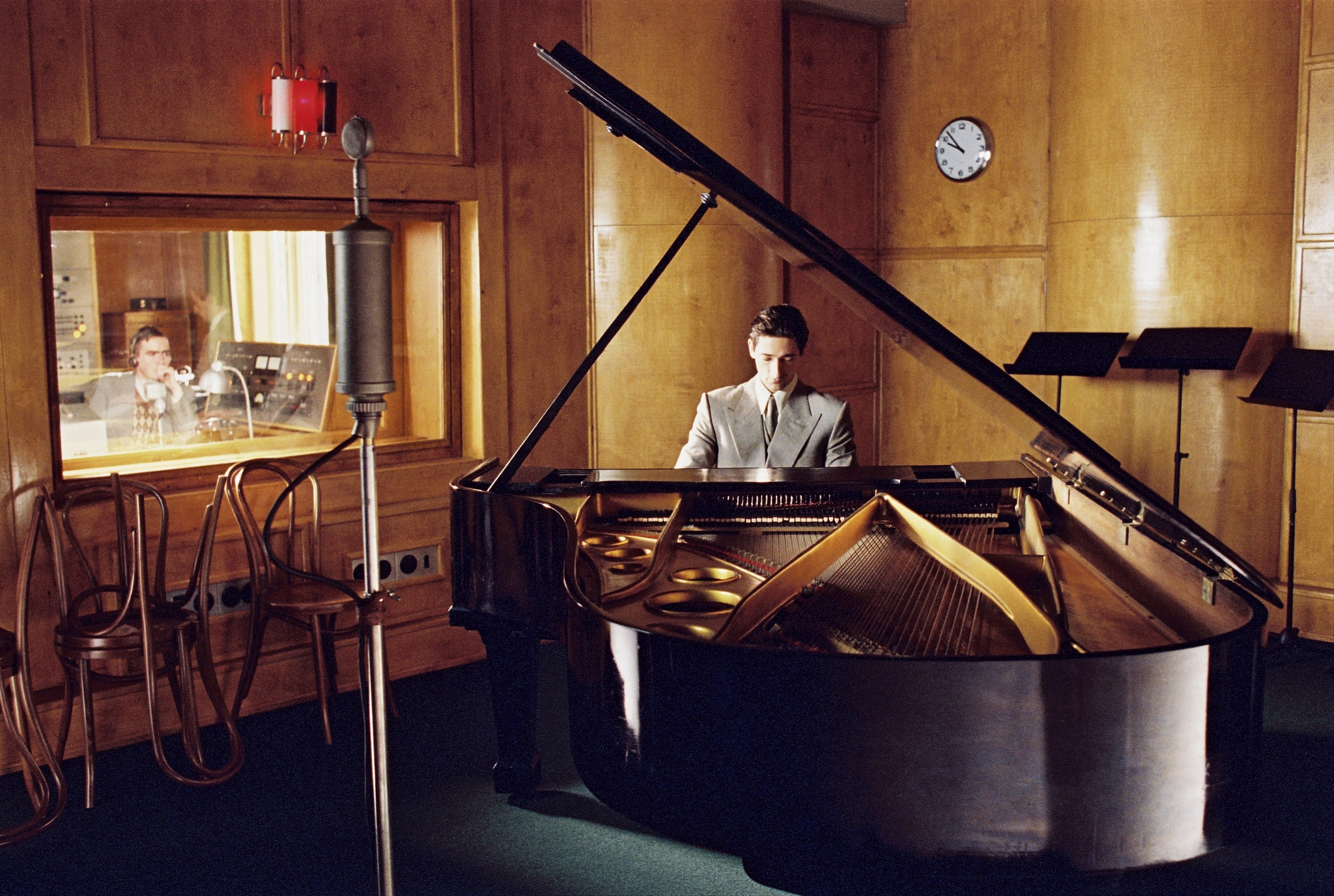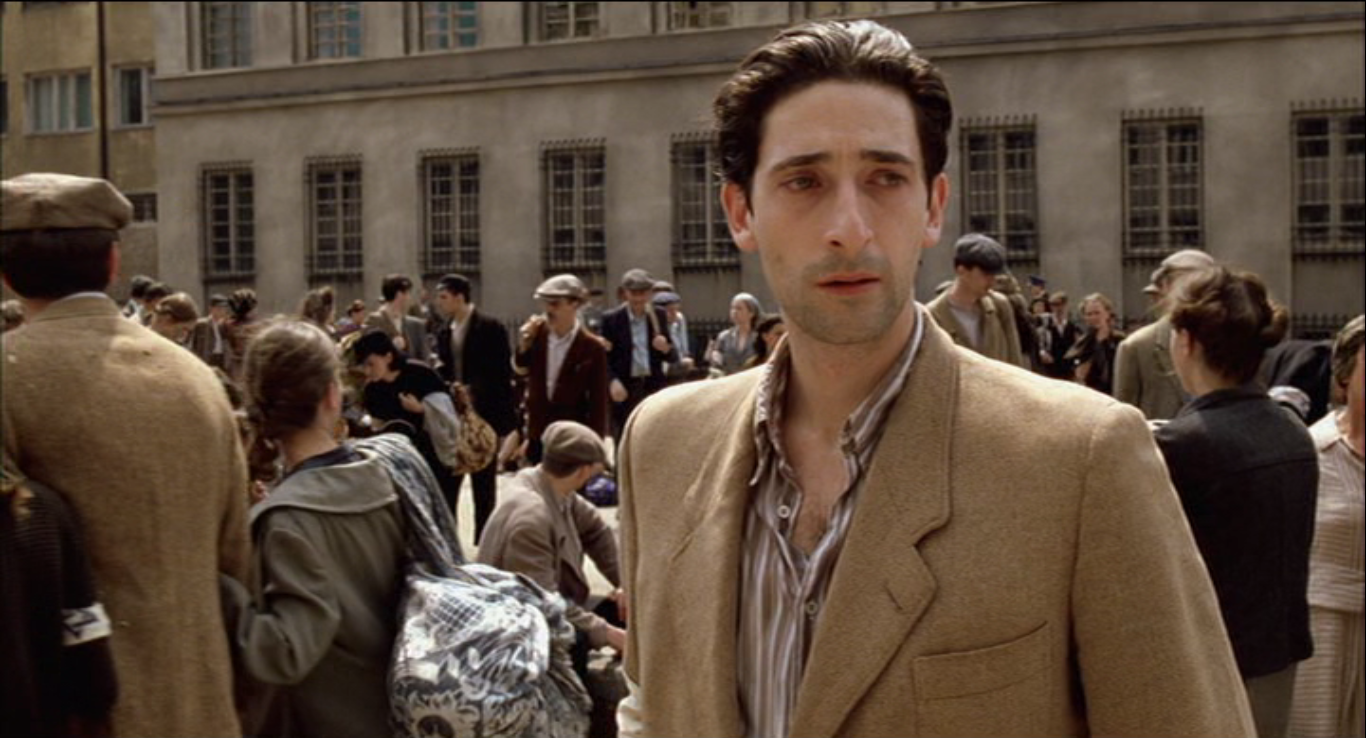The Pianist (2002) 🎹💔
- thaiduong
- December 7, 2024

The Pianist (2002) 🎹💔 – A Heart-Wrenching Tale of Survival and Music Amidst War
The Pianist (2002), directed by Roman Polanski, is a poignant and gripping biographical drama based on the memoir of renowned Polish-Jewish pianist Władysław Szpilman. Set against the backdrop of the brutal German occupation of Warsaw during World War II, this Oscar-winning masterpiece takes viewers on an emotional and harrowing journey through survival, loss, and the resilience of the human spirit.
The film stars Adrien Brody in an award-winning performance as Władysław Szpilman, a talented concert pianist whose life is turned upside down when the Nazis invade Poland. As the war ravages the country, Szpilman’s world is torn apart—his family is forced into the Warsaw Ghetto, and he loses everything he holds dear. Yet, amidst the chaos, Szpilman’s deep love for music remains his lifeline.
A Symphony of Tragedy and Hope
The Pianist opens with the tranquil sounds of Szpilman playing the piano on Polish radio, a symbol of his pre-war life and aspirations. However, as the Nazi forces invade, we see the gradual destruction of everything Szpilman knew. The haunting cinematography, combined with a melancholic score by Wojciech Kilar, captures the slow erosion of Warsaw’s vibrant Jewish community, leading to Szpilman’s eventual displacement.
When Szpilman is separated from his family and forced into the Warsaw Ghetto, he experiences the full horrors of the Holocaust—starvation, violence, and inhumanity. The film masterfully portrays his struggle for survival in this brutal environment, but also emphasizes his internal strength and the power of his music. In a particularly powerful moment, Szpilman plays an abandoned piano he finds in a ruined building—his connection to music not only sustains him physically but also offers an emotional escape from the overwhelming trauma surrounding him.

The Power of Music as a Refuge
One of the most poignant aspects of The Pianist is the role music plays in Szpilman’s life. While many around him succumb to the brutality of the war, music remains his sanctuary, allowing him to maintain his humanity in the face of unimaginable suffering. Szpilman’s extraordinary talent as a pianist is not just a gift, but a lifeline. His music connects him to the world he once knew and offers fleeting moments of solace amidst the chaos. This theme of music as a survival tool is exemplified in the heart-wrenching scenes where Szpilman plays for German officers who, momentarily, are moved by the beauty of his performance, even as they remain unaware of the full extent of the atrocities they are committing.
A Director’s Vision: Polanski’s Masterful Storytelling
Roman Polanski’s direction is nothing short of brilliant, bringing Szpilman’s remarkable story to life with both subtlety and intensity. His ability to balance the harrowing realities of war with moments of humanity and hope is what elevates The Pianist from a mere war film to a deeply personal exploration of survival. Polanski’s own experiences as a Holocaust survivor lend an authenticity and emotional weight to the narrative, allowing him to present the horrors of war in a way that feels intensely personal and universally heartbreaking.
The film’s cinematography, by Paweł Edelman, is a powerful complement to its storytelling. The black-and-white visuals, with their stark contrasts and haunting shots of bombed-out Warsaw, heighten the sense of desolation and isolation that Szpilman experiences. The framing of scenes, often showing Szpilman alone in vast, empty spaces, symbolizes both his physical and emotional solitude. This visual isolation underscores the loneliness and despair of a man who, despite his incredible resilience, is ultimately a victim of a horrific war.
Adrien Brody’s Tour-de-Force Performance
Adrien Brody’s portrayal of Władysław Szpilman is nothing short of extraordinary. His nuanced performance captures the emotional depth and complexity of a man who is stripped of everything—his family, his home, his identity—yet remains determined to survive. Brody’s subtle yet powerful performance earned him an Academy Award for Best Actor, and it is easy to see why. He conveys the immense psychological toll the war takes on Szpilman with haunting realism, using his body language and facial expressions to reflect the pain, fear, and quiet strength of his character. Brody’s ability to convey so much without the need for dialogue speaks volumes about the resilience of the human spirit.

The Cost of Survival
At its core, The Pianist is about survival, but it’s also about the cost of survival. The film doesn’t shy away from showing the deep emotional scars Szpilman carries as a result of the trauma he endures. Even after the war ends and he is freed from his torment, Szpilman is left with the weight of what he’s lost—the death of his family, the destruction of his city, and the irreversible psychological impact of living through such horror. Yet, in the end, he finds some measure of solace in the one thing that was never taken from him: his music.
The conclusion of The Pianist is one of bittersweet triumph. Szpilman’s return to music symbolizes both a reclaiming of his life and an acknowledgment of the loss that will forever haunt him. The final scenes, as he plays for a group of German soldiers who had previously persecuted him, feel like a testament to the resilience of the human spirit and the transformative power of art.

Why The Pianist is Essential Viewing
- A Riveting Story of Survival: The Pianist is a deeply moving exploration of survival in the face of unimaginable adversity. The film portrays the emotional and psychological cost of war, while also celebrating the strength of the human spirit.
- Brilliant Performances: Adrien Brody’s portrayal of Władysław Szpilman is both heart-wrenching and triumphant, earning him numerous accolades, including an Oscar. His performance alone makes The Pianist a must-watch.
- A Cinematic Masterpiece: With Roman Polanski at the helm and Paweł Edelman’s striking cinematography, The Pianist is a beautifully crafted film that balances intimacy and scale. The visual and emotional richness of the film makes it an unforgettable experience.
- The Power of Music: The theme of music as both a refuge and a form of resistance in times of extreme hardship is woven seamlessly into the film, making it both a universal and deeply personal story.
The Pianist (2002) is a profound, moving film that tells a story of survival, resilience, and the transformative power of art. It remains one of the most powerful films ever made about the Holocaust, and its emotional impact stays with viewers long after the credits roll. If you haven’t yet seen it, prepare to be deeply affected by a narrative that explores the darkness of war and the enduring light of the human spirit. 🎹💔










